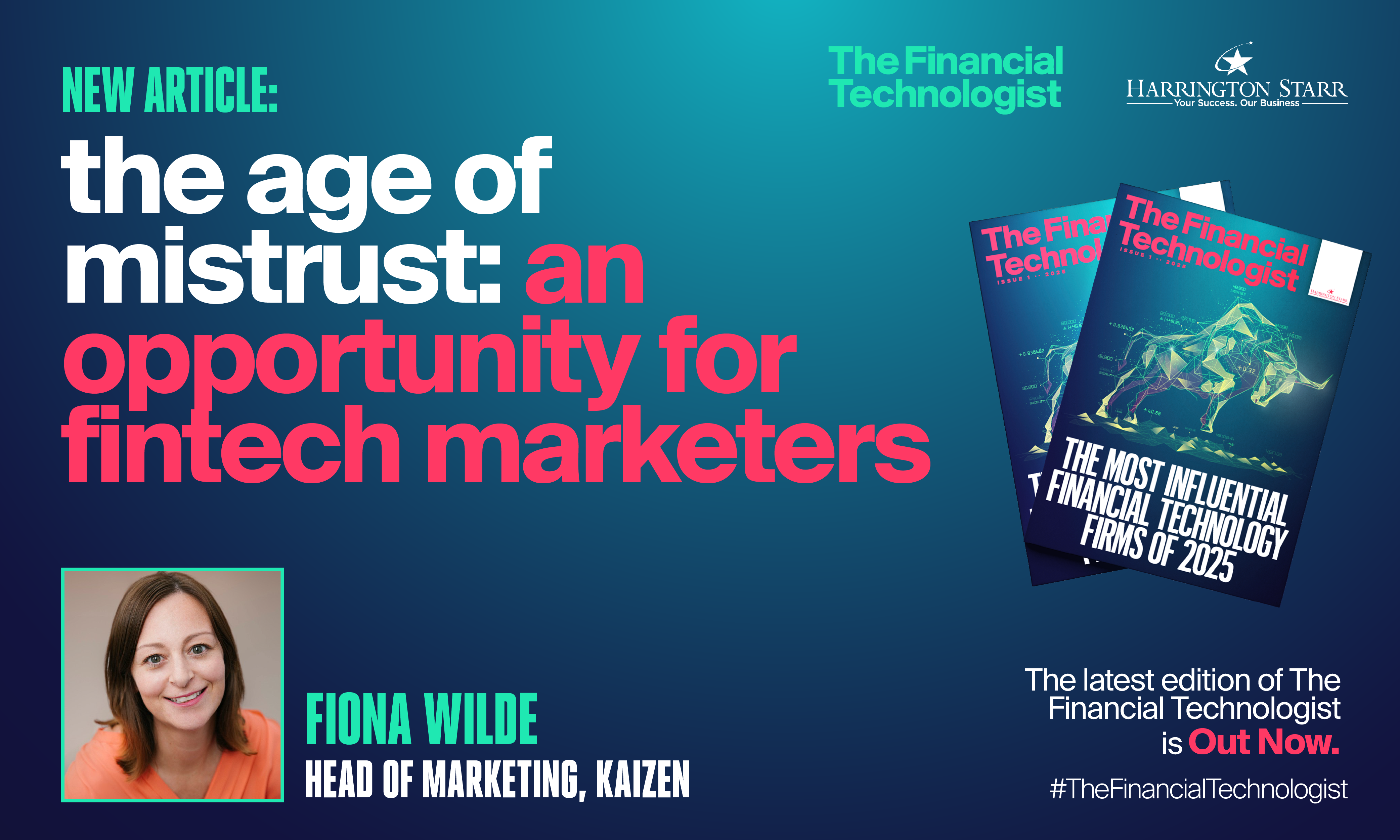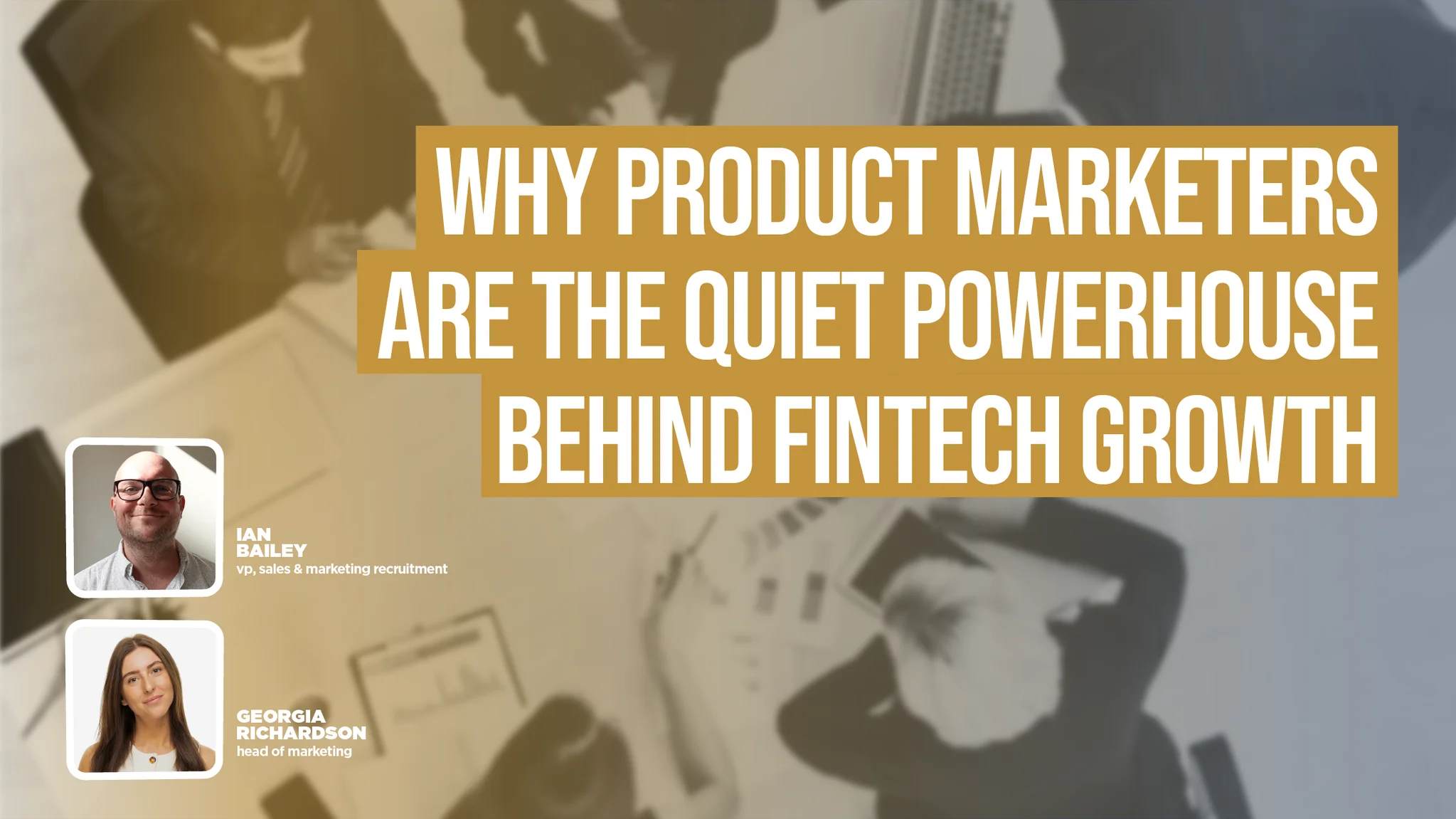Download your free copy of the latest Financial Technologist magazine here.
Fiona Wilde, Head of Marketing at regtech growth firm Kaizen, asks if fintech marketers are sleepwalking into an AI generated content cul de sac?
All the talk within B2B marketing is about a move away from lead generation and a shift towards brand awareness as a key component to drive business growth. I wholeheartedly welcome this. In B2B with its longer sales cycles involving multiple stakeholders, fintechs need to keep uppermost in the minds of their potential customers until these customers are ready to buy. Research by Tech PR firm Babel found that half of all tech buyers replace solutions every 2-5 years.
Is Everything Starting to Sound the Same?
Thought leadership plays an important role in the brand awareness process, positioning your company as a trusted voice, producing insights on trends and industry developments via regular touchpoints, to actively shape how clients and prospects view us.
But with marketers increasingly reliant on AI to create content whether it be written, audio or video there is a risk of a loss of brand voice. Is everything starting to sound and look the same? Customers seem to think so. A recent study by Dentsu found that more than two-thirds (68%) of B2B buyers believe ‘many of the brands I see at work have very similar marketing and communications messages – they all sound and act the same’.
Cut Through the Noise
Founder of Paper Kite Media, Robyn Hartley, an expert in executive thought leadership, says there is a huge opportunity for fintech brands to create authentic content that cuts through the explosion of AI noise:
"AI can increase productivity in so many helpful ways, but when it is used as a crutch to generate thought leadership content, you will likely see little engagement and a dent in buyer trust, as it’s clearly not genuine. Tone of voice and a deep understanding of your audience are extremely important, and these are difficult to achieve through AI,” she says.
“Due to the abundance of generic advice and content, a space has opened up for marketers to develop original material that truly resonates with their target audience. Authentic content builds trust," Robyn advises. She recommends using AI for content ideation but not for creation.
From Mistrust to Trust – and Back
Trust is the key word here. It has never been more important. People buy from brands they know and trust – this is true whether you are selling financial technology, sofas or shoes. They trust what your product and/ or your people will deliver for them. It’s the backbone of the sales process, it’s what gets you invited to pitch, win in the market, add margin, and attract top talent.
This is even more important in this growing age of mistrust. Edelman’s 2025 Trust Barometer highlights a decline of trust in all facets of society, particularly when it comes to technology. When trust is on shaky ground, people tend to buy from brands they know.
"In the 1990s, few trusted the internet for online purchases or sharing credit card details. Over the next two decades, we went from mistrust to trust as people traded their data for speed and convenience, but with the rise of Deepfake and AI-generated content, I predict the next decade will see a return to scepticism as individuals question whether what they see, hear, or read is real and authentic" says Rob Lowry, Founder of My Bright Digital.
So what does that mean for us as Fintech marketers? The erosion of trust and explosion of vanilla AI noise opens the door to build an impactful, powerful brand that connects with your target audience through genuine, human content that touches all stages of the buying process.
By Fiona Wilde, Head of Marketing at regtech growth firm Kaizen
Download your free copy of the latest Financial Technologist magazine here.







